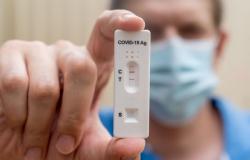L’hydration it is a crucial aspect of health, especially important for the elderly. As we age, the feeling of thirst decreases and the risk of dehydration increases, leading to a variety of health problems. This article will explore the importance of hydration in older adults, the risks associated with dehydration and offer practical advice for ensuring adequate fluid intake.
Importance of Hydration
Body Functions
Water is essential for numerous bodily functions:
- Temperature regulation: Helps maintain a constant body temperature through sweating and breathing.
- Digestion: Promotes the digestive process and transport of nutrients.
- Elimination of Toxins: Facilitates the elimination of waste through urine and feces.
- Joint lubrication: Keeps joints well lubricated, reducing the risk of joint pain.
Specificity in the Elderly
- Reduction of the sensation of thirst: With age, the feeling of thirst decreases, making older adults less aware of their need to drink.
- Impaired renal function: Kidney function tends to decline with age, affecting the ability to concentrate urine and conserve fluids.
- Taking Drugs: Many older adults take diuretic drugs or laxatives that can increase the risk of dehydration.
- Mobility Problems: Difficulty reaching water sources may limit fluid intake.
Risks of Dehydration
Common Symptoms of Dehydration
- Dryness of the mouth and skin: Dry mouth sensation and dry or wrinkled skin.
- Confusion and Disorientation: Dehydration can affect cognitive function, causing confusion, disorientation, and mood changes.
- Dark Urine and Decreased Urinary Frequency: Dark colored concentrated urine and less need to urinate.
- Tiredness and Weakness: Feeling tired, weak and lacking energy.
- Vertigo and Dizziness: Feeling light-headed or dizzy, especially when standing up quickly.
Complications of Dehydration
- Urinary Tract Infections (UTI): Dehydration can increase the risk of urinary infections.
- Constipation: Lack of fluids can cause difficulty in passing a bowel movement.
- Kidney problems: Chronic dehydration can lead to kidney damage or kidney failure.
- Low Blood Pressure: Decreased blood volume may cause hypotension and increased risk of falls.
- Cognitive Impairment: Dehydration can aggravate pre-existing cognitive problems such as dementia or Alzheimer’s.
Tips for Ensuring Adequate Hydration
Recommended Drinks
- Waterfall: The best drink to stay hydrated. It is recommended to drink small sips frequently throughout the day.
- Herbal teas and infusions: Unsweetened, caffeine-free drinks that can be enjoyed hot or cold.
- Diluted Fruit Juices: Preferably without added sugar and diluted with water.
- Milk and Vegetable Milk: Excellent sources of fluids and nutrients such as calcium and vitamin D.
- Broths and Soups: They provide additional liquids and can be especially appreciated during meals.
Nutrition rich in water
- Fruits and vegetables: Watermelon, cucumbers, tomatoes, strawberries, cantaloupe and oranges are rich in water.
- Salads: Adding fresh, crunchy vegetables to salads can increase your fluid intake.
- Jellies and Puddings: They can be pleasant alternatives to increase fluid intake, but without added sugars.
Daily Habits
- Regular Drinking Routine: Set specific times to drink, such as a glass of water upon waking, during meals, and before bed.
- Memorandum: Use reminders on your phone or written notes to remind you to drink.
- Water bottles: Always keep a bottle of water handy, both at home and when you go out.
- Monitoring Fluid Intake: Keeping a journal to track your daily fluid intake can help ensure adequate hydration.
Environment
- Accessibility: Make sure water is easily accessible, especially for those with mobility issues.
- Environmental temperature: Maintain a cool, well-ventilated environment to reduce fluid loss through sweating.
Conclusion
L’hydration It is essential for maintaining the health and well-being of older adults. As we age, the risk of dehydration increases, making it crucial to take preventative measures to ensure adequate fluid intake. By following the advice above, you can significantly improve hydration and prevent complications associated with dehydration. It is important to monitor your fluid intake regularly and consult a doctor if you suspect dehydration or if there are associated health problems.
FAQ
What is the ideal amount of water an elderly person should drink every day?
The ideal amount can vary, but generally it is recommended to drink at least 8 glasses (about 2 liters) of water a day. However, it is important to adapt your fluid intake based on your individual needs and health condition.
What are the signs of dehydration in older adults?
Signs of dehydration include dry mouth and skin, confusion, dark urine, tiredness, weakness, dizziness and dizziness.
What to do if an elderly person refuses to drink water?
Offering alternatives such as herbal teas, diluted fruit juices, broths, soups and water-rich foods can help. Establishing a regular drinking routine and using reminders can be helpful.
Is it safe for seniors to drink caffeinated beverages?
Caffeine can have diuretic effects and contribute to dehydration. It is best to limit the consumption of caffeinated drinks and prefer unsweetened and caffeine-free drinks to maintain adequate hydration.



